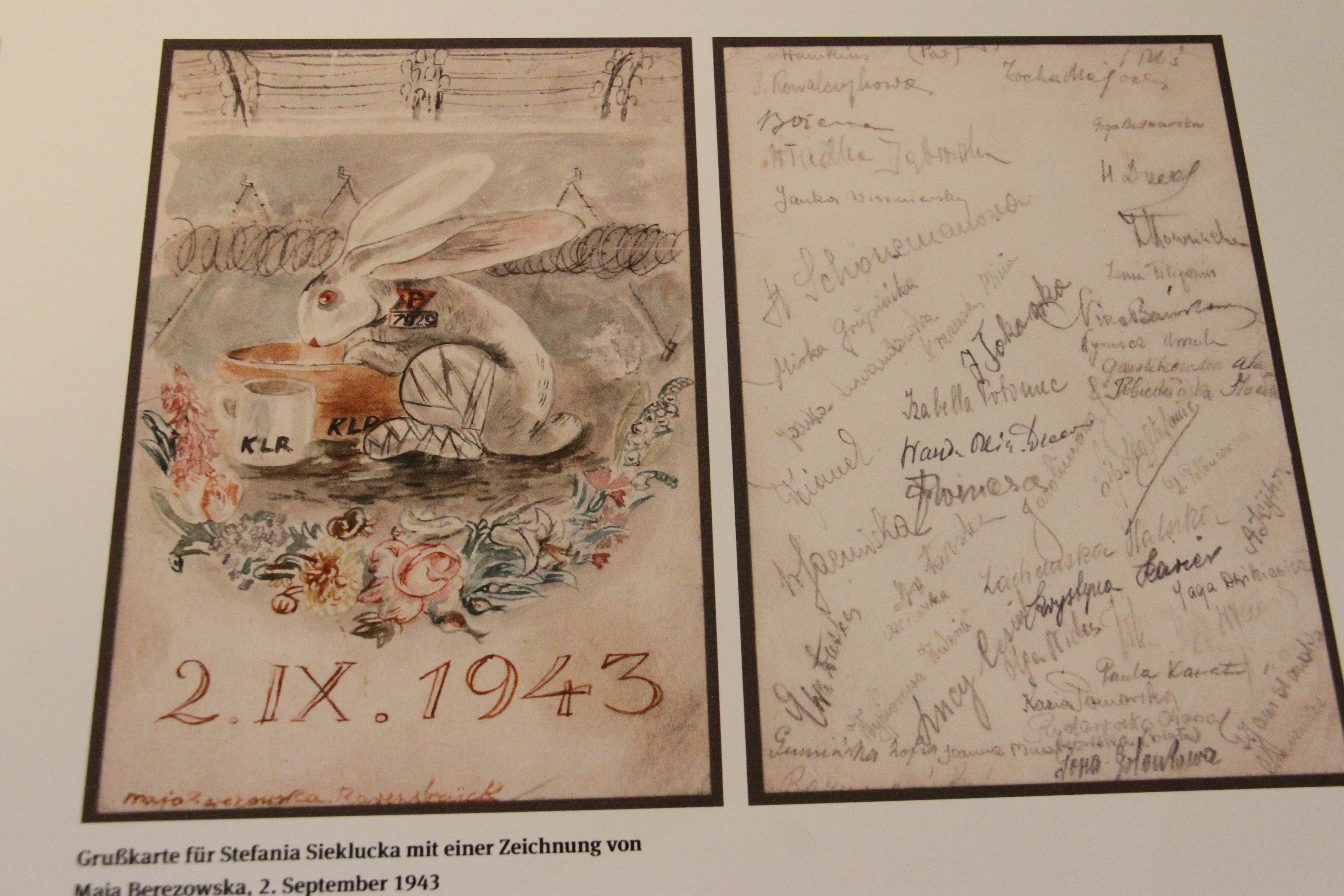So we’re back from Ravensbrück, Platform 17 and Grunewald Forest. We trod the same soil as over 130,000 women and children, 90,000 of whom were murdered on it. We stood in the crematorium where many of them were burned to ash. We looked out across the impossibly beautiful lake to Fürstenberg from the first floor of a pitched roof villa that wouldn’t have looked out of place at Center Parcs, a villa typical of the accommodation afforded to the guards of Ravensbrück. We stood in the cells where women were tortured and beaten. We saw evidence of the medical experiments, where women were used as ‘guinea pigs’ for the furtherance of Nazi research. We touched the five inch thick, A3 bound book where the name of every single Ravensbrück prisoner is written. We heard the tales of sadism from the mouths of survivors.

A ‘get well soon’ card for one of the many ‘guinea pigs’ subject to medical experiments.
This was a research trip for my current novel, The Extractor. My hero, Landry Donovan, and her team of Operatives, jump back to Nazi Germany to save the life of a Jewish Doctor, who, had she not been murdered in the concentration camp, would have gone on to find the cure for cancer. As I began to research the camp, and to write the sections set in the 1940’s, it became clear that I needed to visit the places I was writing about. This is a subject that necessitates extremely sensitive treatment, and I felt I could only do that, and do the victims justice, by immersing myself in the place they were imprisoned.
It wasn’t a pleasant experience. To think that, as a human race, and as women, we are capable of such inhumane behaviour, beggars belief. But we have evolved, getting steadily more violent, and our advancements in weaponry mean that our violence has the potential to affect millions of people at the press of a button. But this wasn’t that kind of faceless violence. This was barbaric and brutal, personal and targeted. The women at Ravensbrück weren’t just Jewish, they were women from over twenty European countries, mostly held for political reasons, and for being ‘asocial’ (criminals, prostitutes, lesbians). We have our freedom of speech. We have the ability to announce our personal views to a worldwide audience at the touch of a smartphone screen. Unless our views are racist or homophobic, or preach religious hatred, we can pretty much say what the hell we like. That was a freedom not afforded in Nazi Germany, and I wonder how many of us would have become a number in a German KZ. On a daily basis, how many things have you said or done which, in this time, would have resulted in you being imprisoned indefinitely, and without trial? It’s frightening.
Could something like this happen again? I would hope not. But my faith in the human race is not what it once was. It’s suffered a devastating blow, and one from which it may never recover. After all, “Hardly anyone is immune to the temptations of unpunished inhumanity” (Gunther Anders). Look deep inside…can you categorically say, that you would be?

